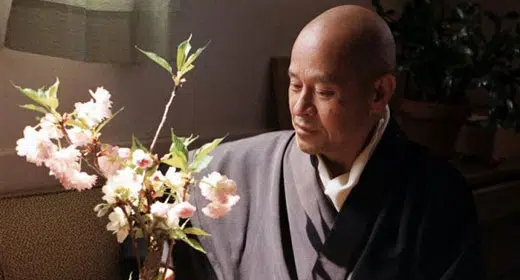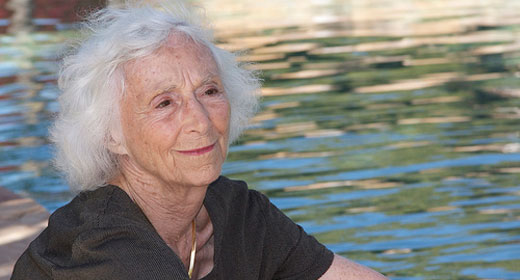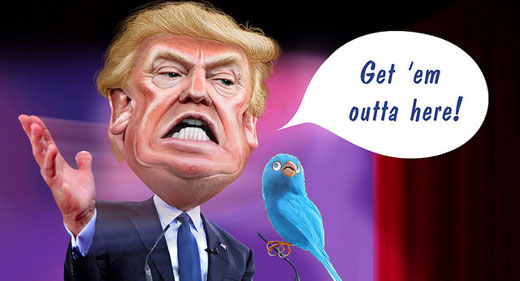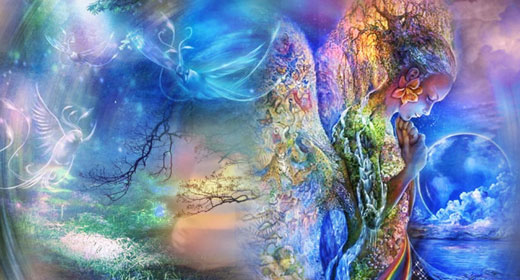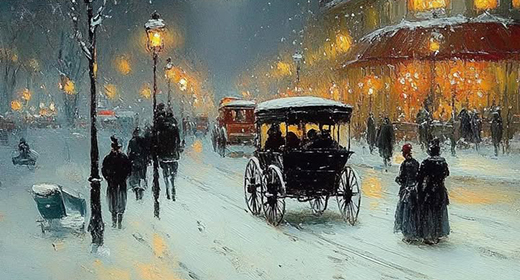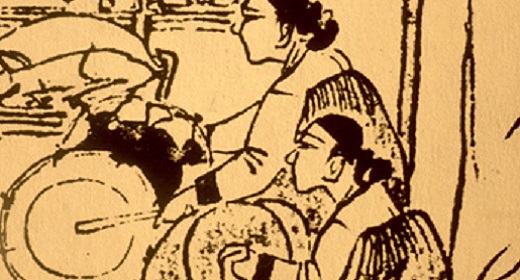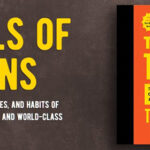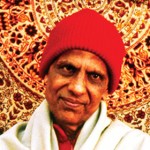by Jiddu Krishnamurti: Q: Is there a difference between the observer and the observed?
We are so conditioned, so heavily burdened with the past, with all our knowledge, information how can the mind be spontaneous? Can the mind observe its activity without prejudice, which means without images? When there is a division between the observer and the observed there is conflict but when the observer is the observed there is no control, no suppression. The self comes to an end. Duality comes to an end. Conflict comes to an end. This is the greatest meditation to come upon this extraordinary thing for the mind to discover for itself the observer is the observed.
2nd Public Dialogue, Brockwood Park, England, 6th Sept. 1973
How do we end fear?
We are discussing something which needs your attention, not your agreement or disagreement. We are looking at life most rigorously, objectively, clearly— not according to your sentiment, your fancy, what you like or don’t like. It’s what we like and don’t like that has created this misery. All that we are saying is this: “How do we end fear?” That’s one of our great problems, because if a human being can’t end it he lives in darkness everlastingly, not everlastingly in the Christian sense but in the ordinary sense; one life is good enough. For me, as a human being, there must be a way out and not by creating a hope in some future. Can I as a human being end fear, totally; not little bits of it? Probably you’ve never put this question to yourself, and probably you’ve not put the question because you don’t know how to get out of it. But if you did put that question most seriously, with the intention of finding out not how to end it, but with the intention of finding out the nature and the structure of fear, the moment you have found out, fear itself comes to an end; you don’t have to do anything about it.
When we are aware of it and come into contact with it directly, the observer is the observed. There is no
difference between the observer and the thing observed. When fear is observed without the observer, there is action, but not the action of the observer acting upon fear.
The duality of thinker and thought
As you watch anything—a tree, your wife, your children, your neighbour, the stars of a night, the light on the
water, the bird in the sky, anything—there is always the observer—the censor, the thinker the experiencer, the seeker—and the thing he is observing; the observer and the observed; the thinker and the thought. So, there is always a division. It is this division that is time. That division is the very essence of conflict. And when there is conflict, there is contradiction. There is “the observer and the observed”—that is a contradiction; there is a separation. And hence where there is contradiction, there is conflict. And when there is conflict, there is always the urgency to get beyond it, to conquer it, to overcome it, to escape from it, to do something about it, and all that activity involves time…. As long as there is this division, time will go on, and time is sorrow.
And a man who will understand the end of sorrow must understand this, must find, must go beyond this duality between the thinker and the thought, the experiencer and the experienced. That is, when there is a division between the observer and the observed, there is time, and therefore there is no ending of sorrow. Then, what is one to do? You understand the question? I see, within myself, the observer is always watching, judging, censoring, accepting, rejecting, disciplining, controlling, shaping. That observer, that thinker, is the result of thought, obviously. Thought is first; not the observer, not the thinker. If there was no thinking at all, there would be no observer, no thinker; then there would only be complete, total attention


